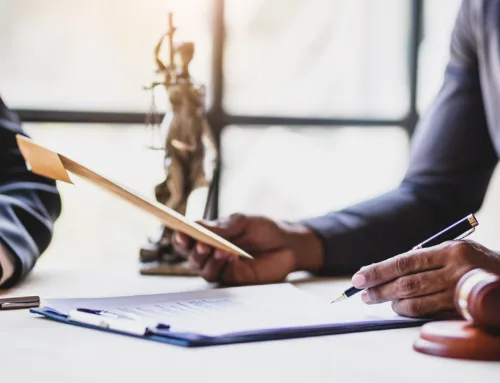If you’ve been hurt in an accident, you may be asking these questions: What is my case worth? How much money can I get for my injuries?
Unfortunately, there’s no easy answer. It’s contingent on many factors like the severity of your injuries, the strength of your evidence, and more. By understanding these factors and consulting a personal injury attorney, you may be able to estimate the value of your case.
Let’s start by talking about the importance of evidence.
Why Evidence Matters for Your Personal Injury Case
Evidence is the most important factor for any personal injury case. Why? Because a jury will look at this evidence to decide how much money you should get from the responsible party.
Evidence could include what you say, what other people in the accident say, what the witnesses saw, medical diagnoses, and what pictures show.
In more difficult cases, experts may be called in to explain how the accident happened or what your future health looks like. Documents like medical bills and pay slips can demonstrate how the accident adversely impacted your life.
Types of Evidence to Consider
To fully understand how evidence impacts the value of your personal injury case, it’s essential to consider the following types of evidence:
- Your Statement: This is the account of the accident from your point of view, as well as the POV of other involved parties.
- Witnesses Statements: These are the people who saw the accident, or how those who observed you before and after it. They can back up your story and explain how the accident changed you.
- Official Reports: Official reports from the police, firefighters, or paramedics who came to the accident can prove what happened and how bad it was.
- Medical Records: These are the opinions from the doctors who treated you. They can prove that your injuries came from the accident, and how they affect you.
- Photos and Videos: Images and videos can show the accident scene, your injuries, and other pertinent details to the case. They show the jury what you experienced.
- Expert Opinions: These are the people who can explain how the accident happened, what your future needs are, or how much money you lost. They can explain things that are hard to understand or prove.
- Documents: Documents like medical bills, accident reports, and pay stubs show how much money you spent or lost because of the accident.
- Employer Statement: These are the papers or words from your employer that show how much money you made before and after the accident. They can show how the accident hurt your ability to work.
In addition to evidence, there are several other key factors that influence what your personal injury case is worth.
Key Factors Impacting Your Personal Injury Case
Severity of Injuries
If your injuries are severe, you can get more money. There isn’t an easy way to know how much your case is worth. Some lawyers might use a formula or a tool, but that’s not how it works in real life. The insurance companies do that too, but they don’t care about you. The real value of your case depends on your injuries and how they have affected your life.
Responsibility
There is a rule called “modified comparative negligence” that affects your case. If you are partly at fault for the accident, you can get less money. But if you are more than 50% at fault, you can’t get any money. This rule applies to both court cases and insurance deals, so you need to understand how it works.
Insurance Coverage
In Georgia, there are minimum insurance requirements for drivers and businesses. These are the lowest amounts of money they have to pay if they hurt you. But some people and businesses have more insurance, which means you can get more money. You need a lawyer to find out how much insurance there is and how to get the most money from it.
Now let’s explore the various types of compensation available in Georgia personal injury cases, highlighting both economic and non-economic damages.
Assessing Damages in Georgia Personal Injury Cases
In Georgia, types of compensation include special damages and general damages. Special damages are easy to count and include medical bills and lost wages. General damages, on the other hand, cover non-economic losses. In Georgia, you can get money for general damages such as:
- Normal Living: How the injury affects your daily life.
- Enjoyment of Life: How the injury stops you from doing things you love.
- Work and Money: How the injury hurts your ability to work and earn money.
- Health and Energy: How the injury harms your health and energy.
- Fear of Injury: How the injury makes you scared of getting hurt again.
- Shock of Impact: How the injury shocks you when it happens.
- Pain and Suffering: How the injury causes you physical and mental pain, now and in the future.
- Mental Anguish: How the injury causes you emotional distress, now and in the future.
- Limited Activities: How the injury limits your activities and choices.
The non-economic damages like pain and suffering can be more than the Economic damages like medical bills and lost wages. But to get these general damages, you have to show evidence that matches the categories a jury can consider. For example, to show “loss of enjoyment of life,” your own words may help.
Case Example
Imagine you’re a builder who got a shoulder injury in a car accident, requiring surgery and a four-month recovery time. During this time, you can’t work or take care of your kids, including a newborn. In this case, your own words, backed by words from friends, family, or co-workers, can prove how the injury impacted your life. In harder cases, experts might be asked to tell how the injury has affected your quality of life
What’s the Real Worth of Your Personal Injury?
You may still be wondering, “What is my case worth?” From physical pain to emotional stress, the adverse effects of your injury can increase the value of your case. Here are examples of the real cost of general damages.
Pain and Suffering
Compensation for pain and suffering isn’t just related to medical bills. It could be the nights you can’t sleep, limitations in daily life, or chronic pain. An experienced personal injury lawyer knows how to attribute monetary value to these challenges and make sure you’re paid fairly.
Stress and Anxiety
Accidents can hurt your mental health too. While emotional distress might not have a name in a legal case, trust us, it matters. For example, juries can grant you money for “mental anguish, past and future.” This lets you show evidence in court of the mental pain you experienced because of the accident. A skilled personal injury lawyer will gather evidence to make sure your mental anguish is not overlooked.
Interference with Enjoyment of Life
Enjoyment of life matters too. If your injuries prevent you from participating in your favorite hobbies or activities, that’s another way the accident adversely impacted your life.
Your Fight Is Our Fight
Your personal injury case isn’t just about money. It’s also about being healthy and getting justice. As experts in personal injury cases, Flanagan Law can help you navigate the complexities of the legal system and maximize your compensation.
Unlike most law firms, we see you—the person behind the case—and personalize a strategy that brings justice to you and your family. Schedule a free consultation today to learn how we can help.
Not ready to schedule a consultation? Discover more helpful tips and best practices for your case. Read The Complete Guide to Personal Injury Cases in Atlanta.


